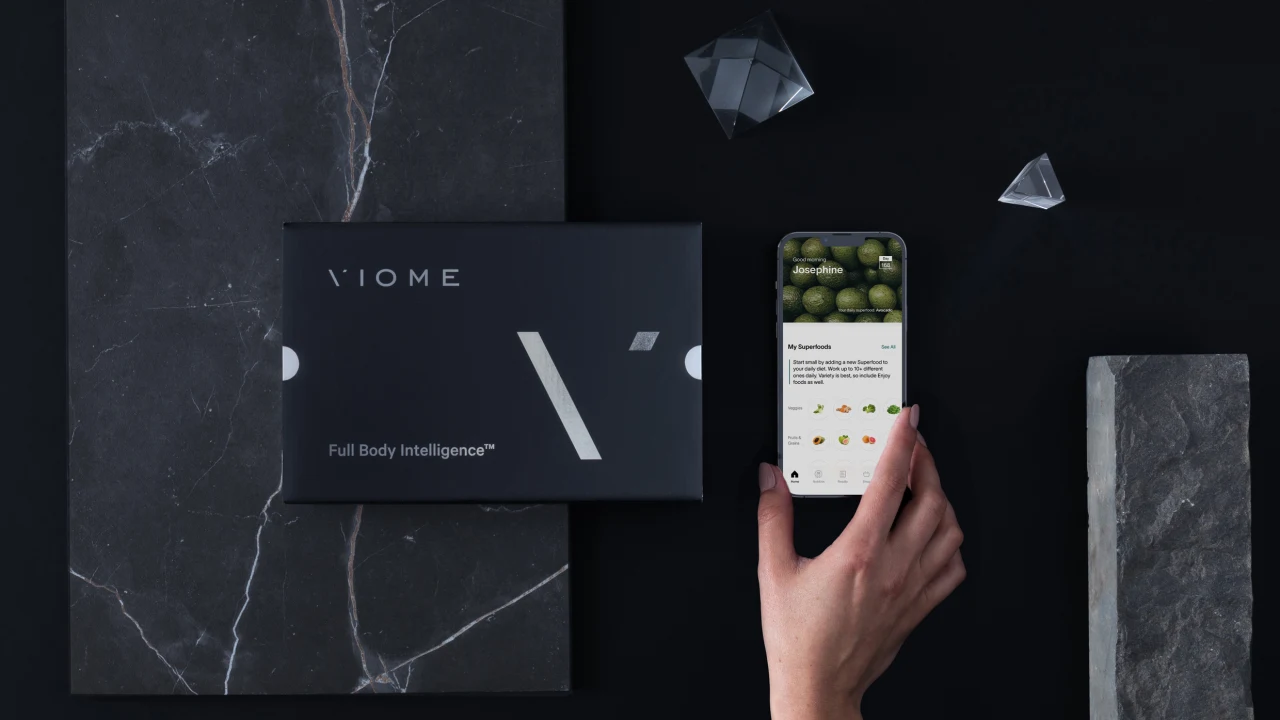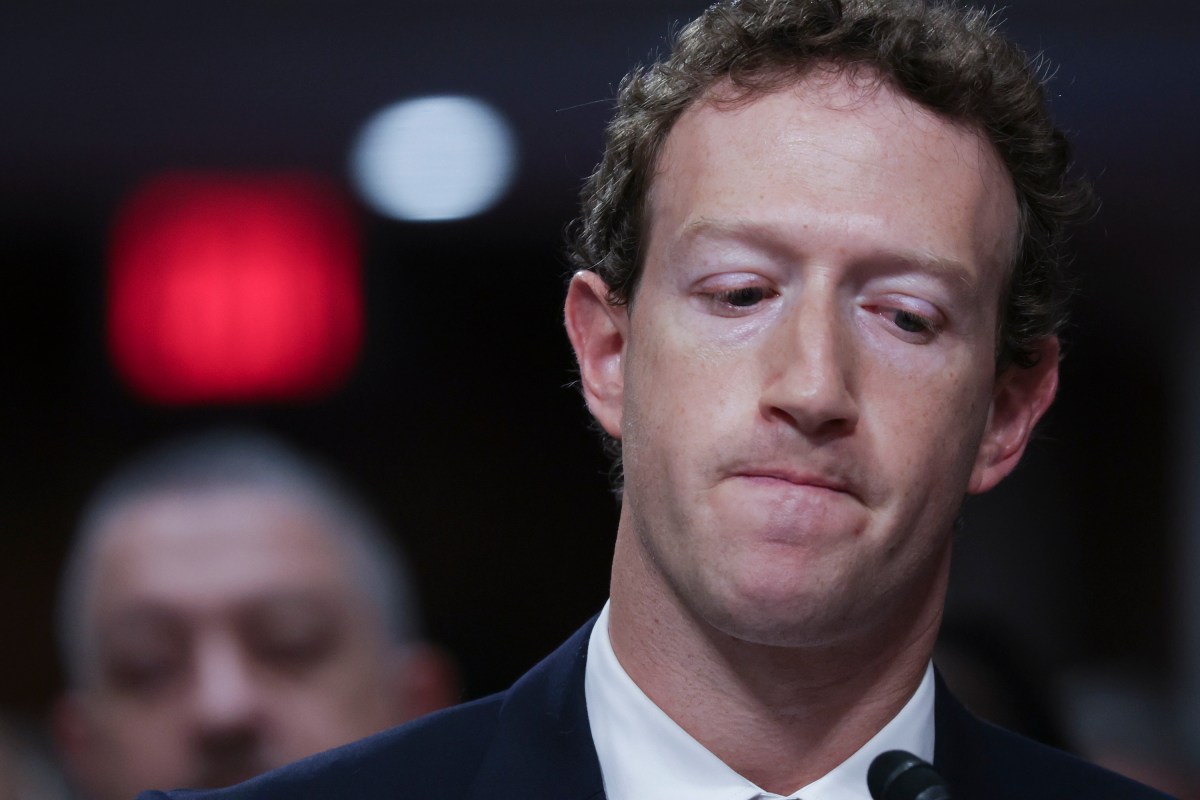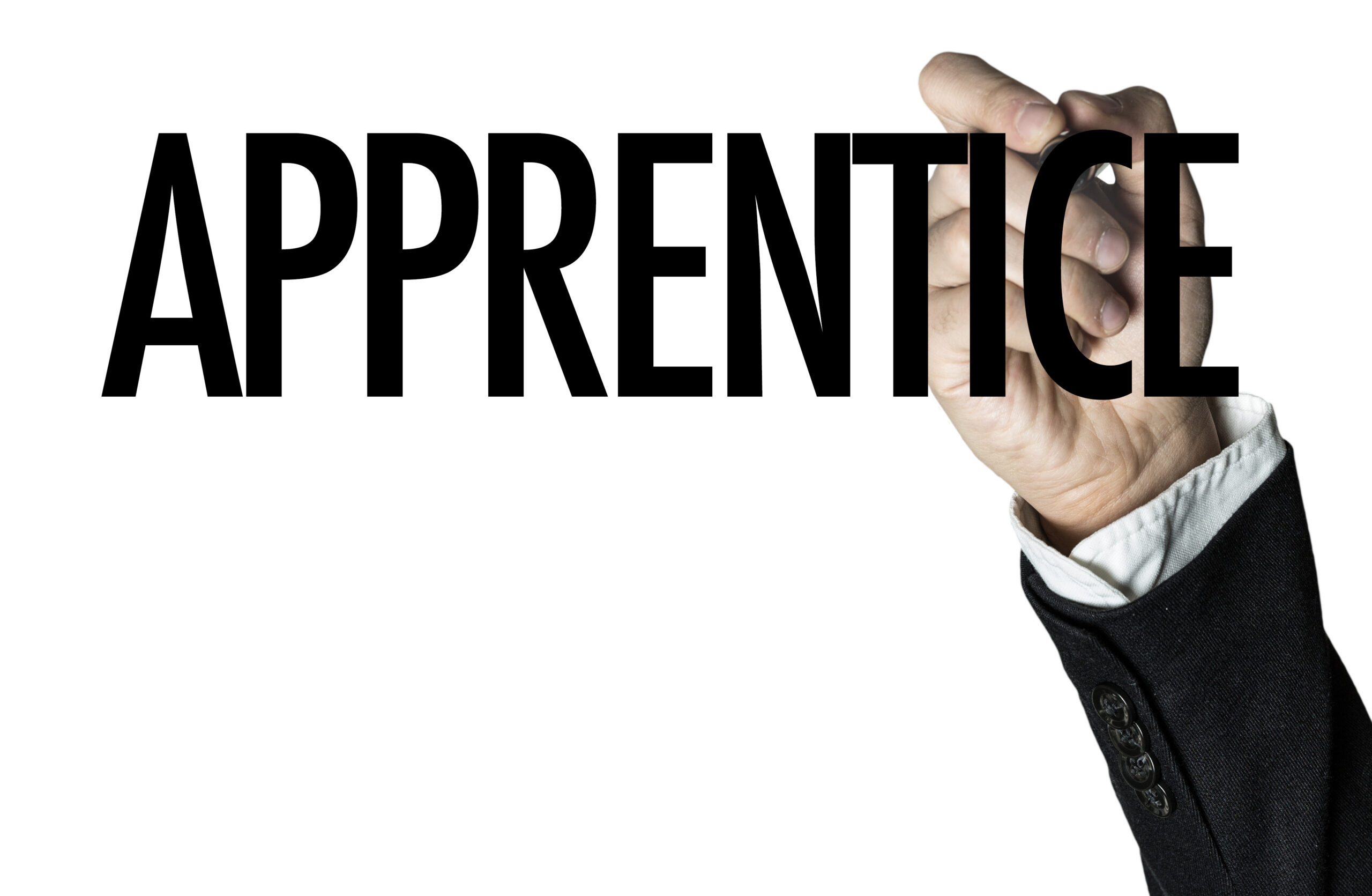Gut check: Can this company’s microbiome tests improve your health?
Inside our bodies lies a flourishing ecosystem of microorganisms. This microbiome of bacteria and viruses has a powerful impact on our health but the exact nuances of how are still being filled in. Health company Viome Life Sciences believes it has some answers. Viome’s audacious promise to customers is that it can analyze their saliva, stool, or blood and produce health reports on their microbiome, accompanied by personalized dietary and supplement recommendations that will improve people’s health. (Viome also sells personalized supplements, toothpaste, and lozenges that it says can promote better microbiome health.) To do this Viome uses proprietary technology to analyze its customers’ microbiome. RNA contains the recipe from DNA that directs a cell to build proteins. By sequencing a customer’s RNA, Viome is able to understand what bacteria is in their microbiome. It then uses its proprietary AI algorithms to compare this to a large sample to understand who is at risk for certain diseases and make dietary and supplement recommendations. Viome founder Naveen Jain says Viome has built a database of over 100 quadrillion biological datapoints from people in over 90 countries. It’s a proposition the company says more than 400,000 people have bought into—and one that’s interested a growing stable of investors. This week, Viome announced the completion of a $25 million internal Series D funding round, with investors that include Khosla Ventures, Bold Capital WRG Ventures and Marc Benioff, bringing its total funding up to $200 million since it was founded in 2016. Alongside the funding round, Viome has hired Kal Raman, a seasoned tech and startup executive, as its COO. Viome was founded by Naveen Jain in 2016, after his father passed away from pancreatic cancer. Jain is also the founder of internet search company Infospace, Intellius which collects and sells background information on people, and Moon Express which sought to mine the moon for minerals and was selected as a contractor by NASA to send robots and rovers to the moon. After his father’s death, Jain became interested in exploring improved ways to diagnose chronic diseases early, and it led him to explore RNA. “Everyone wanted to know about your DNA, but your DNA doesn’t change when you become diabetic, or depressed or anxious,” Jain says. “The answer is in our RNA. If we can figure out what RNA is in the microbiome, we have a shot at early diagnosis.” In 2015, Jain met Momo Vuyisich, a scientist investigating the connection between disease and the microbiome at Los Alamos National Labs. Jain licensed the technology—which now makes up the backbone of Viome’s products—and hired Vuyisich as the company’s founding chief science officer and head of clinical research. Today Viome’s customers can choose from three different tests that analyze their RNA: gut intelligence ($279), oral intelligence ($259), and full body ($399)—each of which requires a different set of samples (full body includes saliva, blood and stool. Viome’s Cadillac offering is a $599 cancer detect test that analyzes saliva for biomarkers associated with early stage cancer. Customers receive a health report with personalized food and supplement recommendations. The full-body report includes 50 different health scores for such indicators as gut health and cellular age. Viome claims following its recommendations can reduce severe IBS symptoms by 39%, severe depression by 31%, and severe anxiety by 31%. [Image: courtesy of Viome] As COO, Raman—who previously served as Samsung’s chief digital officer, Groupon’s COO, and an SVP at Aamazon—will be tasked with scaling Viome. It might be slightly unfamiliar territory from tech and retail, but he says his job is to focus on getting patients interested in the insights Viome can offer. “I don’t want to learn too much about the science—we have our chief medical officer for that. My job is to be the conscience of the customer and patient,” he says. “The science is pretty close to unquestionable. Execution is our biggest challenge.” However, some experts do question Viome’s science. Viome has received FDA approval as a breakthrough device for its cancer test, but its gut, oral, and full-body tests are categorized as health-and-wellness products, which fall outside of FDA regulation, as do the company’s supplements. [Image: courtesy of Viome] Dr. Eugene Chang is a professor at University of Chicago Medicine and the director of the school’s microbiome medicine program. Chang says Viome’s technology is better than most companies of its kind and it make sense to focus on RNA rather than DNA. “Measuring messenger RNA will give you a better idea of how the gut microbiome is functioning,” he said. Still, Chang says that existing literature about how to identify healthy vs. unhealthy microbiome signatures is inconsistent. “I worry about the claim that Viome can distinguish between whether you’re in good health or no

Inside our bodies lies a flourishing ecosystem of microorganisms. This microbiome of bacteria and viruses has a powerful impact on our health but the exact nuances of how are still being filled in.
Health company Viome Life Sciences believes it has some answers. Viome’s audacious promise to customers is that it can analyze their saliva, stool, or blood and produce health reports on their microbiome, accompanied by personalized dietary and supplement recommendations that will improve people’s health. (Viome also sells personalized supplements, toothpaste, and lozenges that it says can promote better microbiome health.)
To do this Viome uses proprietary technology to analyze its customers’ microbiome. RNA contains the recipe from DNA that directs a cell to build proteins. By sequencing a customer’s RNA, Viome is able to understand what bacteria is in their microbiome. It then uses its proprietary AI algorithms to compare this to a large sample to understand who is at risk for certain diseases and make dietary and supplement recommendations. Viome founder Naveen Jain says Viome has built a database of over 100 quadrillion biological datapoints from people in over 90 countries.
It’s a proposition the company says more than 400,000 people have bought into—and one that’s interested a growing stable of investors. This week, Viome announced the completion of a $25 million internal Series D funding round, with investors that include Khosla Ventures, Bold Capital WRG Ventures and Marc Benioff, bringing its total funding up to $200 million since it was founded in 2016. Alongside the funding round, Viome has hired Kal Raman, a seasoned tech and startup executive, as its COO.
Viome was founded by Naveen Jain in 2016, after his father passed away from pancreatic cancer. Jain is also the founder of internet search company Infospace, Intellius which collects and sells background information on people, and Moon Express which sought to mine the moon for minerals and was selected as a contractor by NASA to send robots and rovers to the moon.
After his father’s death, Jain became interested in exploring improved ways to diagnose chronic diseases early, and it led him to explore RNA. “Everyone wanted to know about your DNA, but your DNA doesn’t change when you become diabetic, or depressed or anxious,” Jain says. “The answer is in our RNA. If we can figure out what RNA is in the microbiome, we have a shot at early diagnosis.”
In 2015, Jain met Momo Vuyisich, a scientist investigating the connection between disease and the microbiome at Los Alamos National Labs. Jain licensed the technology—which now makes up the backbone of Viome’s products—and hired Vuyisich as the company’s founding chief science officer and head of clinical research.
Today Viome’s customers can choose from three different tests that analyze their RNA: gut intelligence ($279), oral intelligence ($259), and full body ($399)—each of which requires a different set of samples (full body includes saliva, blood and stool. Viome’s Cadillac offering is a $599 cancer detect test that analyzes saliva for biomarkers associated with early stage cancer.
Customers receive a health report with personalized food and supplement recommendations. The full-body report includes 50 different health scores for such indicators as gut health and cellular age. Viome claims following its recommendations can reduce severe IBS symptoms by 39%, severe depression by 31%, and severe anxiety by 31%.

As COO, Raman—who previously served as Samsung’s chief digital officer, Groupon’s COO, and an SVP at Aamazon—will be tasked with scaling Viome. It might be slightly unfamiliar territory from tech and retail, but he says his job is to focus on getting patients interested in the insights Viome can offer. “I don’t want to learn too much about the science—we have our chief medical officer for that. My job is to be the conscience of the customer and patient,” he says. “The science is pretty close to unquestionable. Execution is our biggest challenge.”
However, some experts do question Viome’s science. Viome has received FDA approval as a breakthrough device for its cancer test, but its gut, oral, and full-body tests are categorized as health-and-wellness products, which fall outside of FDA regulation, as do the company’s supplements.

Dr. Eugene Chang is a professor at University of Chicago Medicine and the director of the school’s microbiome medicine program. Chang says Viome’s technology is better than most companies of its kind and it make sense to focus on RNA rather than DNA. “Measuring messenger RNA will give you a better idea of how the gut microbiome is functioning,” he said.
Still, Chang says that existing literature about how to identify healthy vs. unhealthy microbiome signatures is inconsistent. “I worry about the claim that Viome can distinguish between whether you’re in good health or not—I don’t see any scientific evidence backing it up,” he says.
While Chang believes that personal diet can impact someone’s health, he points out the scientific literature does not yet show this. “I don’t know anyone that has done the scientific studies to claim that say…eating an apple is going to change your microbiome in a way that will promote the immune system. It may, but to my knowledge no one has shown a direct connection, and to say you have a specific diet based off of markers—that’s a lot.” (Chang is also developing his own microbiome test and is working on getting FDA approval. He notes that he is nowhere near being able to make personalized dietary recommendations.)
Chang is careful to note that he doesn’t have access to Viome’s proprietary algorithms. “Maybe they’ve figured something out and they have brilliant technology,” he says. “But I haven’t seen them publish anything that convinces me of this. As a doctor, I wouldn’t prescribe anything or recommend a treatment that wasn’t backed up by more evidence.”
Jain, however, has high hopes for what Viome can do for the future of human health. “We need people to be aware our service exists. Most people don’t know that we exist and you can just take an at home test and change your diet to feel healthier and better,” he said.






















